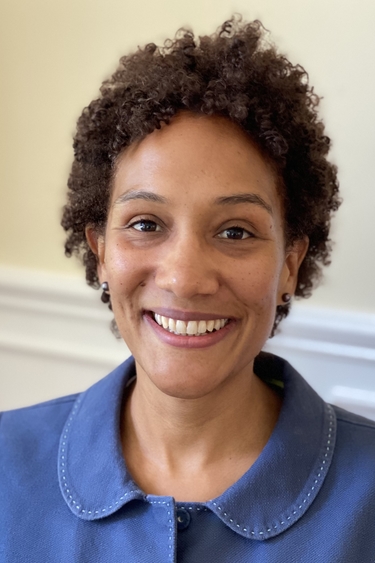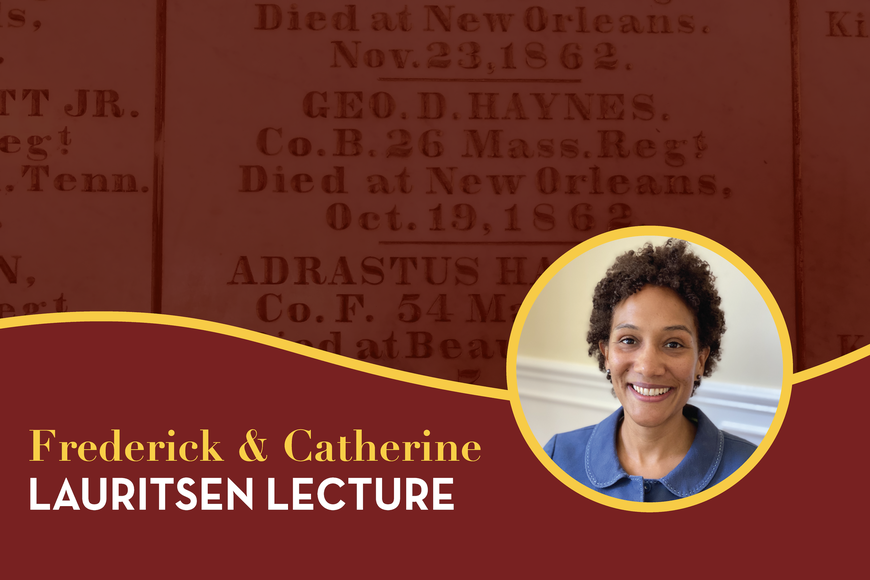Fugitive Greek and Roman Histories in Modern America
271 19th Ave S
Minneapolis,
MN
55455
Many Americans are familiar with a classicising strain in the eighteenth and nineteenth century America, in which America's new empire formed part of a civilizational relay, succeeding to the vanquished civilizations of ancient Athens, Sparta, and Rome. In recent scholarship, scholars have increasingly turned their attention to the fugitive classical histories that oscillated around this dominant narrative.
Fugitive Greek and Roman Histories in Modern America will be presented by Professor Emily Greenwood (Harvard University). Drawing examples from Native American and African American history, this lecture will explore three key modes for ironising the Greek and Roman classical past in the nineteenth century history - nominalism, analogy, and eulogy - and the fugitive histories that emerge.
This event is free and open to the public. Light refreshments will be served following the lecture.
Join us in-person or via Zoom!
Co-sponsored by: Center for Premodern Studies and Department of Classical & Near Eastern Religions & Cultures
Featured Speaker

Emily Greenwood is the James M. Rothenberg Professor of the Classics and of Comparative Literature at Harvard University. In broad terms, Professor Greenwood is interested in the plural histories of use that make up the classical tradition of ancient Greece and Rome and reciprocal dialogues between the modern discipline of Classics and unruly histories of reception. She is equally excited by Demosthenes’ use of Thucydides, how postcolonial literatures recycle Greek myths, and what classical philology can teach us about the grammar of being human in contemporary America. As a classicist, Greenwood considers herself responsible for knowledge of and about the ancient Greek works that she studies, and for reimagining the history and literature of ancient Greece and Rome against different horizons. This is what, in her view, makes Classics a fresh and endlessly complex field of study: beyond the piling up of erudition, it is also a way of living and thinking with dynamic works and using our moral imagination in the process.
Greenwood's research spans ancient Greek literature (especially historiography), classical reception studies, translation studies, intellectual history, postcolonial studies, and Black Studies. She has published two books: Afro-Greeks: Dialogues Between Anglophone Caribbean Literature and Classics in the Twentieth Century (2010), joint winner of the 2011 Runciman Award, and Thucydides and the Shaping of History (2006). She has also co-edited two volumes, Homer in the Twentieth Century: Between World Literature and the Western Canon (co-edited with Barbara Graziosi), and Reading Herodotus: A Study of the Logoi in Book 5 of Herodotus’ Histories (co-edited with Elizabeth Irwin). Greenwood is working on two current books projects. The first, Black Classicisms and the Expansion of the Western Classical Tradition, explores the critical difference that local and transnational black traditions of interpreting Greek and Roman classics make to existing conceptions of the Western classical tradition and Classics as a node for black internationalism. The second, The Recovery of Loss: Classics and the Erasure of American Histories examines paradigmatic instances where ancient Greek and Roman narratives, myths, and histories were used to stand in for diverse American histories, contributing to their loss. She explores ways in which classical scholarship might contribute to the understanding and partial recovery of this loss. Greenwood is also guest editor for a two-volume special issue of the American Journal of Philology on the theme of “Diversifying Classical Philology” (AJP issues 143.2 and 143.4).
Frederick and Catherine Lauritsen Lecture in Ancient History
This series of lectures brings a distinguished historian of the ancient world to the University of Minnesota every year to deliver a public lecture and occasionally to participate in seminars and other events. It was established in 2002 by a generous gift from Frederick M. Lauritsen, who received his Ph.D. in history from Minnesota in 1973, and his wife Catherine.
